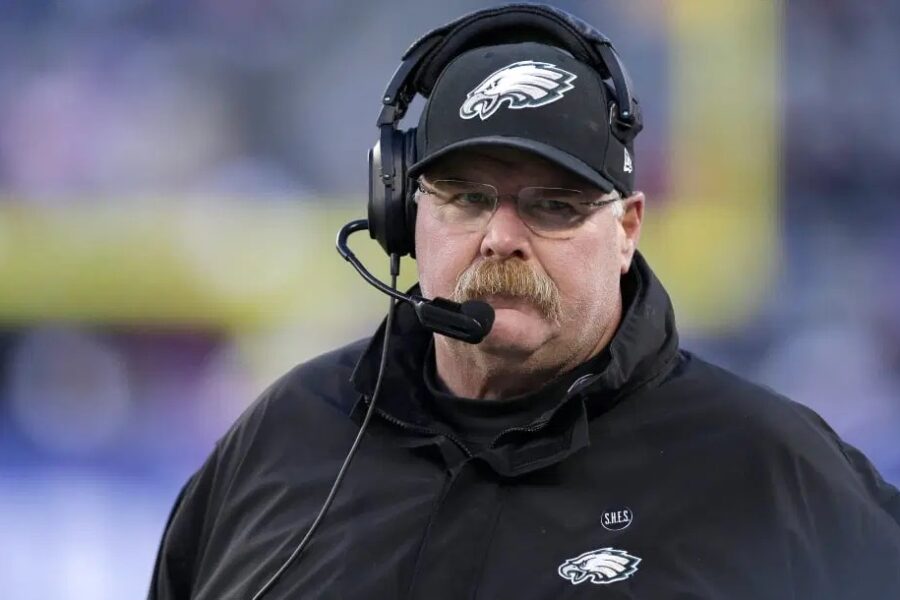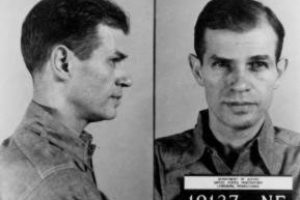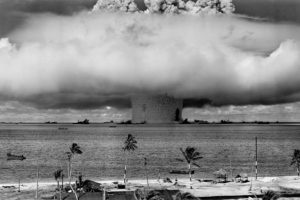In last night’s Super Bowl, the Kansas City Chiefs defeated the Philadelphia Eagles by scoring a field goal in the last few seconds of play. Final score: 38-35.
This triggered rioting by Eagles fans in Center City Philadelphia. Of course it did. Rioting seems to be the default response hard wired into the DNA of Eagles fans regardless of the outcome. They rioted when the Eagles won the Super Bowl in 2018, and no doubt would have done the same last night if the Eagles had been victorious.
Now it must be said that, as Philadelphia riots go, this one was pretty tame. To see what I mean, click on the following picture:
As you can see, the crowd was young and reasonably sober. Trust me, under similar circumstances, their parents and grandparents – in their youth – would have done a much better job of mindless mayhem, violence and property destruction.
Anyhow, as I watched a post-game interview of Chiefs head coach Andy Reid, I thought back to the days when he had coached the Eagles and my one professional interaction with his team and the National Football League.
One overcast day in November 2001, I was sitting in my law office when the telephone rang. I don’t recall who was on the line, but he had some kind of a connection with the Philadelphia Eagles. He had been referred to me by a television sports reporter and asked if I would be interested in representing a member of the team regarding some unfortunate criminal charges.
I asked for more and better particulars. What do they say this Eagle did?
It turned out that the Philadelphia police had arrested and charged this young man with possession of marijuana. He had been let go by the team and was facing criminal prosecution as well as permanent banishment from professional football for violation of the National Football League’s drug policy.
It sounded interesting, so I said to send him over, and I would see what I could do.
Later that day a very large, reticent and nervous young man named Terrence Carroll walked into my office. He had been a rookie safety with the Eagles. As we talked, I got the impression that he wasn’t sure if he could trust me, but he nevertheless asked me to take his case.
I will spare you the step-by-step account of how I pieced together the facts of the case. But here, based on information from my client, other Eagles players and staff, and the Philadelphia police, is what appears to have happened.
On a Friday evening, Terrence and veteran Eagles running back Correll Buckhalter and rookie corner back Darrell Crutchfield had been stuck in traffic on Philadelphia’s South Street. They were in a massive SUV with tinted windows.
One of the occupants produced a “blunt” which is a cigar packed with marijuana. They fired it up and began passing it around. After the vehicle filled with smoke, they rolled down the windows to let in some fresh air. This released a cloud bank of marijuana smoke which blanketed South Street.
That was when nearby uniformed Philadelphia police officers, drawn by the smoke pouring out of the SUV, approached and, exercising that world-famous Philly PD courtesy, asked the occupants what the f*** did they think they were doing?
The police removed the players from the SUV, lined them up on the sidewalk and demanded to see identification.
“Hey, no problem, officers!” they replied brightly as they produced their team ID cards. “It’s okay! See? We’re Philadelphia Eagles!”
Suitably impressed, the patrol officers had the occupants transported to South Detectives where investigators took over.
For the detectives, this was a real mess. All three Eagles had been passing around the blunt. What to do? Who to charge?
Finally, one of the detectives sat down with the players and explained the facts of life.
“Look,” he said, “It would hurt the team too much if all three of you went down. So one of you is going to have to take the fall. Talk it over and let us know who.”
Buckhalter, the veteran, called Andy Reid, the Eagles head coach, and explained the situation. According to sources, it took Reid approximately five nanoseconds to make a decision.
Buckhalter was the Eagles’ leading rusher so no way was he going down. That left rookies Crutchfield and Carroll neither of whom had logged any time on the playing field. Crutchfield had the more promising stats on paper, so Carroll had to take the hit.
And that’s what happened. Buckhalter and Crutchfield walked, and Carroll was charged.
Reid suspended Buckhalter and Crutchfield for the upcoming game with Dallas and released Carroll. Terrence was off the team.
It seemed to me that the criminal case wouldn’t be too difficult. Terrence had no prior criminal record and he was facing misdemeanor marijuana possession charges.
But, when I called my friends at the district attorney’s office to discuss a pre-trial diversion of the case (no trial, no conviction and record expunged if the defendant didn’t re-offend), I got a Fourth of July speech about how little kids looked up to the Eagles and Terrence had embarrassed the team, tarnished the image of professional football, and had to be held accountable.
As I listened to this bilge, I began to realize that this wasn’t going to be such a simple matter after all.
So I began nosing around and developing the facts.
For example, how had Terrence and friends come into possession of the blunt? Had someone bought it on the street? Was it a gift? Where did it come from?
And that’s when we struck gold. It turned out that the blunt had been provided by the Eagles very own team dealer. A blunt? This guy routinely provided the team with drugs of all sorts and quantities.
Armed with this information, I called the district attorney’s office.
I told them that I understood their position that Terrence had embarrassed the Eagles and tarnished the team’s image. But then I broke the news that the besmirched Eagles had their very own drug dealer who kept the team fully supplied. I was prepared to turn over my investigative file so that they could begin rooting out this threat to the honor and image of professional football.
“Look,” I said. “You guys are going to be heroes! You will be known forever as the incorruptible stalwarts who cleaned up the Philadelphia Eagles. It will be a perp walk for the ages!”
I could be wrong, but I think that I heard someone on the other end of the call throwing up into a waste basket.
After all, these guys weren’t idiots. They knew that they would be lynched by a howling mob of blood thirsty Eagles fans if they did their duty and wrecked the team.
So we reached a reasonable accommodation. In return for the name of the dealer and my promise to keep my mouth shut, my client would be put into the pre-trial diversion program.
And that’s what happened.
At the pre-trial diversion hearing, the court staff and spectators were in awe of Terrence. One courtroom deputy asked for his autograph. Even the judge was deferential. When he ordered that the defendant would have to do community service to qualify for the diversion program, Terrence refused. He planned to leave town once the hearing was over, so think again, judge.
Well, I thought, at least we tried. No way is the court going to go for that. We’re headed back to the regular criminal list.
But his honor agreed! If Terrence the Eagle didn’t want to do community service, no problem! Diversion granted!
When I last saw Terrence, he was packing his worldly possessions into a rental car. The most valuable item that he owned was a set of gold hub caps that he had bought for his now repossessed sports car.
He looked sad and resigned as he drove away.
I followed up with his agent and the NFL drug policy crowd. But his career was over. The NFL wouldn’t look the other way, and apparently no other team was willing to take a chance on him.
I don’t know what became of Terrence.
As for the team dealer, many years later he was arrested and prosecuted without serious damage being done to the Eagles.
But that’s a story for another time.




Leave a Reply
Leave a reply.